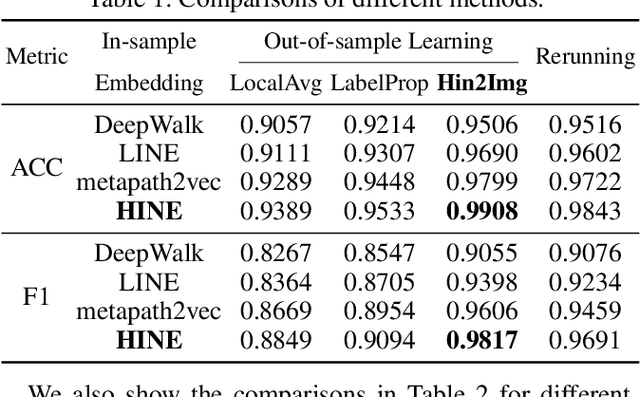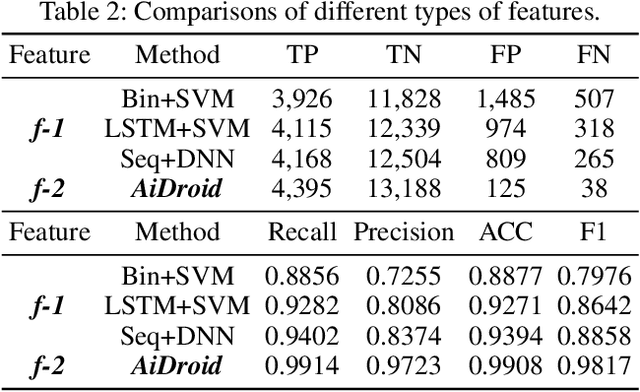Wenqiang Wan
Rényi Divergence Deep Mutual Learning
Sep 15, 2022



Abstract:This paper revisits an incredibly simple yet exceedingly effective computing paradigm, Deep Mutual Learning (DML). We observe that the effectiveness correlates highly to its excellent generalization quality. In the paper, we interpret the performance improvement with DML from a novel perspective that it is roughly an approximate Bayesian posterior sampling procedure. This also establishes the foundation for applying the R\'{e}nyi divergence to improve the original DML, as it brings in the variance control of the prior (in the context of DML). Therefore, we propose R\'{e}nyi Divergence Deep Mutual Learning (RDML). Our empirical results represent the advantage of the marriage of DML and the R\'{e}nyi divergence. The flexible control imposed by the R\'{e}nyi divergence is able to further improve DML to learn better generalized models.
AiDroid: When Heterogeneous Information Network Marries Deep Neural Network for Real-time Android Malware Detection
Nov 02, 2018



Abstract:The explosive growth and increasing sophistication of Android malware call for new defensive techniques that are capable of protecting mobile users against novel threats. In this paper, we first extract the runtime Application Programming Interface (API) call sequences from Android apps, and then analyze higher-level semantic relations within the ecosystem to comprehensively characterize the apps. To model different types of entities (i.e., app, API, IMEI, signature, affiliation) and the rich semantic relations among them, we then construct a structural heterogeneous information network (HIN) and present meta-path based approach to depict the relatedness over apps. To efficiently classify nodes (e.g., apps) in the constructed HIN, we propose the HinLearning method to first obtain in-sample node embeddings and then learn representations of out-of-sample nodes without rerunning/adjusting HIN embeddings at the first attempt. Afterwards, we design a deep neural network (DNN) classifier taking the learned HIN representations as inputs for Android malware detection. A comprehensive experimental study on the large-scale real sample collections from Tencent Security Lab is performed to compare various baselines. Promising experimental results demonstrate that our developed system AiDroid which integrates our proposed method outperforms others in real-time Android malware detection. AiDroid has already been incorporated into Tencent Mobile Security product that serves millions of users worldwide.
 Add to Chrome
Add to Chrome Add to Firefox
Add to Firefox Add to Edge
Add to Edge